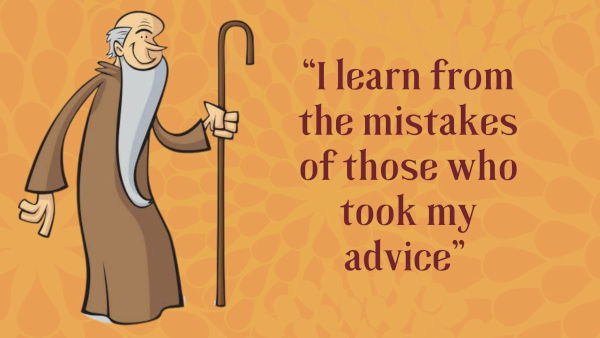[Photo by Marc Wieland on Unsplash]
Good morning,
Most people know a lot of good stories, but don’t know how to tell them. How do you get it right? Chris Anderson attempts to answer this question in The Official TED Guide to Public Speaking. He begins by showcasing how a good story is told.
“Once, when I was eight years old, my father took me fishing. We were in a tiny boat, five miles from shore, when a massive storm blew in. Dad put a life jacket on me and whispered in my ear, ‘Do you trust me, son?’ I nodded. He threw me overboard. [pause] I kid you not. Just tossed me over! I hit the water and bobbed up to the surface, gasping for breath. It was shockingly cold. The waves were terrifying. Monstrous. Then … Dad dived in after me. We watched in horror as our little boat flipped and sank. But he was holding me the whole time, telling me it was going to be OK. Fifteen minutes later, the Coast Guard helicopter arrived. It turned out that Dad knew the boat was damaged and was going to sink, and he had called them with our exact location. He guessed it was better to chuck me in the open sea than risk getting trapped when the boat flipped. And that is how I learned the true meaning of the word trust.”
And here’s how not to tell it:
“I learned trust from my father when I was eight years old and we got caught in a storm while out fishing for mackerel. We failed to catch a single one before the storm hit. Dad knew the boat was going to sink, because it was one of those Saturn brand inflatable boats, which are usually pretty strong, but this one had been punctured once and Dad thought it might happen again. In any case, the storm was too big for an inflatable boat and it was already leaking. So he called the Coast Guard rescue service, who, back then, were available 24/7, unlike today. He told them our location, and then, to avoid the risk of getting trapped underwater, he put a life jacket on me and threw me overboard before jumping in himself. We then waited for the Coast Guard to come and, sure enough, 15 minutes later the helicopter showed up—I think it was a Sikorsky MH-60 Jayhawk—and we were fine.”
“The first story has a character you care about and intense drama that builds to incredulity before being beautifully resolved. The second version is a mess. The drama is killed by revealing the father’s intent too early; there’s no attempt to share the actual experience of the kid; there are too many details included that are irrelevant to most of the audience, while other germane details like the giant waves are ignored. Worst of all, the key line that anchors the story, ‘Do you trust me, son?,’ is lost.”
There’s much to think about as most of us deliver virtual presentations.
In this issue
- Real journalism vs fake news
- The collapse of Lebanon
- Good teachers
Real journalism vs fake news
Last week, the Norwegian Nobel Committee announced that it was awarding this year’s Peace Prize to Maria Ressa and Dmitry Muratov. “Ms Ressa and Mr Muratov are receiving the Peace Prize for their courageous fight for freedom of expression in the Philippines and Russia. At the same time, they are representatives of all journalists who stand up for this ideal in a world in which democracy and freedom of the press face increasingly adverse conditions,” the committee said.
In a column in The Washington Post, Nina Jankowicz, author of How to Lose the Information War, writes what it means to Facebook, which has been facing heat in the past few weeks for its impact on society.
Jankowicz writes that the award to Ressa “is a recognition of her courage in standing up to a strongman, yes, but it is also a mark of appreciation for all she has taught the world about the ways social media—and Facebook in particular—can be used to harm public safety and democracy. She started this crusade before ‘fake news’ became a household phrase, and she deserves the world’s recognition for her far-sightedness.
“Her Nobel Prize is just recognition of the importance journalism plays in supporting democracy and defending human rights. But it is also an indictment of the suffering social media platforms have caused by spreading harmful disinformation and failing to protect women and other marginalized communities from online abuse. Giving Ressa the prize for peace makes a statement we should all keep in mind: Disinformation threatens peace.”
Dig deeper
The collapse of Lebanon
There is much alarm in many parts of the world, India included, about depleting coal supplies and the impending power cuts. Lebanon, once the envy of the Middle East, knows what it is like to bear the brunt of it. That is why when a ground report on the situation there was published in The Telegraph, we read it closely.
“The state electricity company is running out of fuel itself and says the country could be in total blackout by the end of the week, leaving private generator owners desperately scouring the black market for diesel…
“Former economy minister Nasser Saidi has said that ‘Lebanon is that rare combination of an experienced Kleptocracy and a Kakistocracy’—ruled by an elite that is both corrupt and incompetent—that pulled off the ‘greatest Ponzi scheme in history’.
“A tiny Mediterranean nation that produces little, since the war Lebanon has attracted much of its foreign capital by offering high interest rates, with ever increasing public borrowing used to pay creditors—essentially a regulated Ponzi scheme.
“Expatriate Lebanese in particular parked their money in local banks, many enjoying the high returns while planning for eventual retirement in Lebanon.
“Rather than channelling money into productive investments like fixing the electricity grid, Lebanon’s government used foreign capital to fix the lira at an artificially high rate. This provided greater purchasing power to Lebanese in a country where nearly everything is imported but the ever-mounting public debt virtually guaranteed an eventual collapse.”
Dig deeper
Good teachers

(Via WhatsApp)
Found anything interesting and noteworthy? Send it to us and we will share it through this newsletter.
And if you missed previous editions of this newsletter, they’re all archived here.
Warm regards,
Team Founding Fuel
(Note: Founding Fuel may earn commissions for purchases made through the Amazon affiliate links in this article.)

